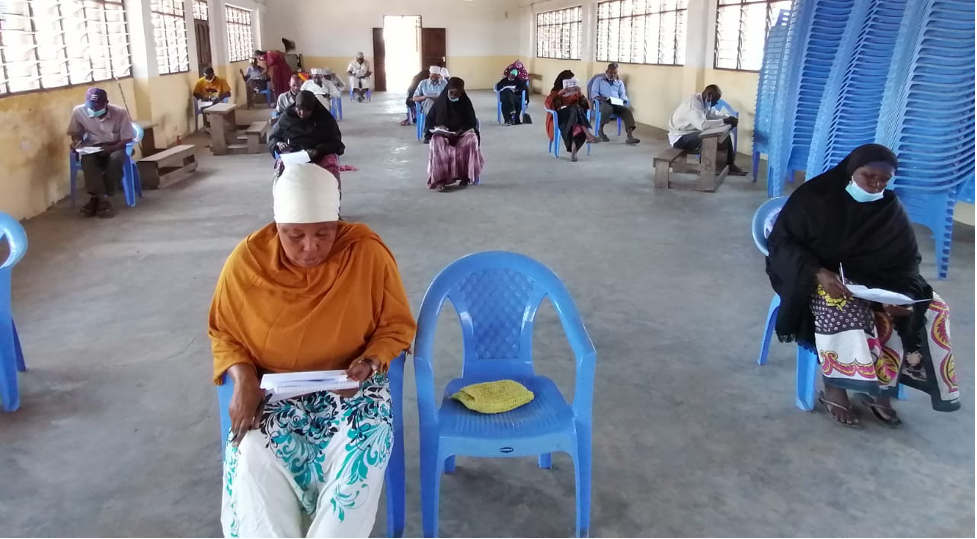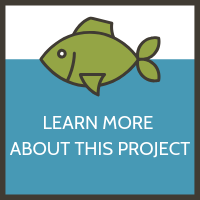
Laura Zseleczky
The Feed the Future Innovation Lab for Fish (Fish Innovation Lab) is working with the Wildlife Conservation Society (WCS) in Kenya to secure coral reef sanctuaries from increasing climate change disturbances. Once these sanctuaries are identified, supporting sustainable fisheries is a primary conservation objective. Increasing knowledge among stakeholders on how best to manage fisheries is one method towards this goal.
Members of the WCS team recently held meetings with 251 people in five fishing villages in southern coastal Kenya to introduce the Fish Innovation Lab’s Achieving Fisheries Sustainability in a Climate Sanctuary project. Participants included members of local beach management units—fishers, fish friers, fish traders, and boat operators—as well as local government officials and seaweed farmers. WCS has been working with these stakeholders for nearly 20 years through awareness campaigns, trainings, and the annual Fishers Forum to share information about sustainable fisheries management.
Following the project introduction, over 100 meeting participants (58 men and 47 women) volunteered to take an exam to test their knowledge of fisheries and sustainability.
“We were evaluating what they have learned from WCS during awareness creation, training, education, and importantly the annual Fishers Forum, which brings together a wide range of stakeholders including beach management unit members,” said Jesse Kosgei of the WCS Kenya Marine Program.
The Fisheries Resource Users Literacy Examination tested knowledge of fishing, national fisheries regulations, basic fisheries economics, and ecology. WCS administered the exams between October 19 and November 23, 2020. Half of the stakeholders who took the exam were youth, defined in Kenya as less than 35 years old.
Results from the exam will form the basis for a targeted education program for beach management units that will support sustainability goals.
“Through this exam, we are able to determine their levels of understanding and provide training and awareness on their limitations,” said Kosgei.
Three people from each beach management unit received additional training materials and will share their knowledge and skills with other members during their unit meetings. WCS will work closely with the three trained members in each unit to monitor resources against set benchmarks and recommended fisheries estimates. These liaisons will also help to encourage proper management or restrictions to ensure sustainable resource use and initiate conversations to improve fisheries resources.
The WCS team will repeat the exam in two years to determine if the education program has improved fisheries knowledge and sustainable yields in participating communities.
Published December 21, 2020

